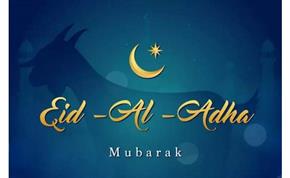
What is Eid Al-Adha?
Known as the “Festival of the Sacrifice” or colloquially as “Big Eid”, Eid Al-Adha is considered the holier of the two Islamic Eid festivals.
It honours the famous story of the willingness of the prophet Ibrahim (known in the Christian Old Testament as Abraham) to sacrifice his son as an act of obedience to God’s command. However, before Ibrahim carried out the heart breaking request, God, known as Allah in Islam, produced a lamb for him to sacrifice instead.
To commemorate this, an animal is traditionally sacrificed and divided into three parts in an act known as Qurbani. One part of the sheep is given to the poor, one to the immediate family at home and one is reserved for relatives. Some Muslims may give money to charity to give poorer families the chance to have a proper Eid feast. Mosques and community groups will often arrange communal meals.
Eid Al-Adha is celebrated with friends and family. Muslims will often attend the Eid prayer and greet each other saying Eid Mubarak, which means 'Have a blessed Eid'.
Eid Al-Adha falls on the tenth day of Dhul-Hijjah, the twelfth month of the Islamic Hijri calendar. Because this is based on the lunar cycle, in the more commonly used Gregorian calendar, this date shifts from year to year, moving forward around 11 days annually.
This year, Eid Al-Adha begins on the evening of Saturday the 9th of July and ends on the evening of Wednesday the 13th of July. However, the main celebrated day will be on Saturday 9th July 2022.
If you would like to find out more about the work of the Trust Multi-Faith Network, please contact multifaith@eastamb.nhs.uk.
Published 8th July 2022